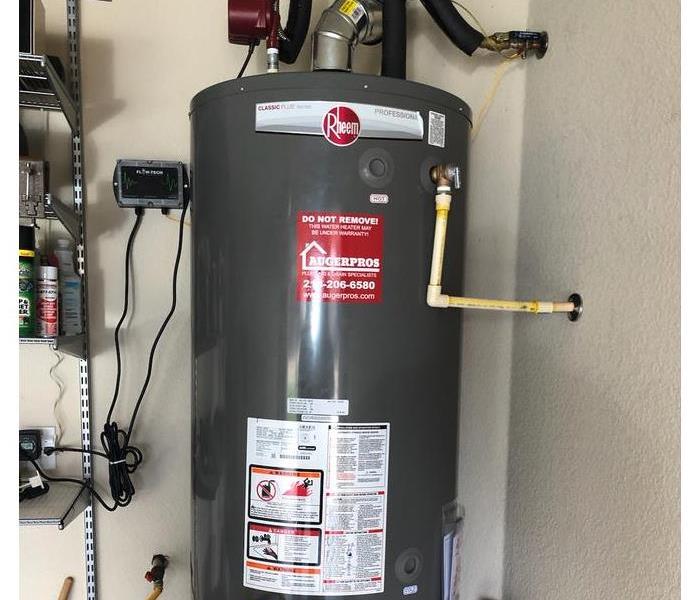When Was The Last Time You Flushed Your Water Heater?
8/15/2022 (Permalink)
Common answers include "I don't know," "Never," or "Wait What? You're supposed to flush you water heater?"
Because many home projects compete for your attention, water heater maintenance can be easily forgotten. Routine activities like running the dishwasher, showering or washing laundry depend on a properly functioning unit. Unseen problems may slowly develop into a catastrophe; so making sure to maintain your water heater is paramount.
How Should a Heater Be Flushed?
Performing a flush can help you identify problem areas. Before you start, establish a safety zone in the heater room. Then perform the following steps:
- To avoid electric shock, make sure floors and all other room surfaces are dry, and turn off your main water valve.
- Next, turn off the electric power circuit breaker or turn off the gas, depending on your heater's energy source.
- Wait several hours for the tank water to cool off.
- Attach a garden hose to your water heater drain, place the other end on your driveway, and open the tank drain so water can flow outside.
- Repeat until the unit is empty, then detach the hose, close the drain valve, turn on the main water supply, and safely restore the power.
When Are Flushes Recommended?
Although your heater may be working, these appliances lose effectiveness over time as water sediment builds up, so yearly flushing helps maintain the units in optimal condition. Certain signs may indicate that you need to schedule a water heater flush sooner.
What Are Some Early Warning Signs?
One of the first signs can be strange noises coming from the tank. Water may take longer to heat or leaks may begin to appear under the heater. Water discoloration or unpleasant odors can also signal problems.
What if There Is a Problem?
If you experience problems or feel you cannot safely perform a flush, you may want to call for professional assistance. Some issues may need to be identified and resolved by an expert technician or plumber. You can receive the help you need and best solutions can also be evaluated.
Preventative yearly maintenance can maximize the life of your water heater and help identify problems while they are small enough to be fixed. That's always a good idea!






 24/7 Emergency Service
24/7 Emergency Service
